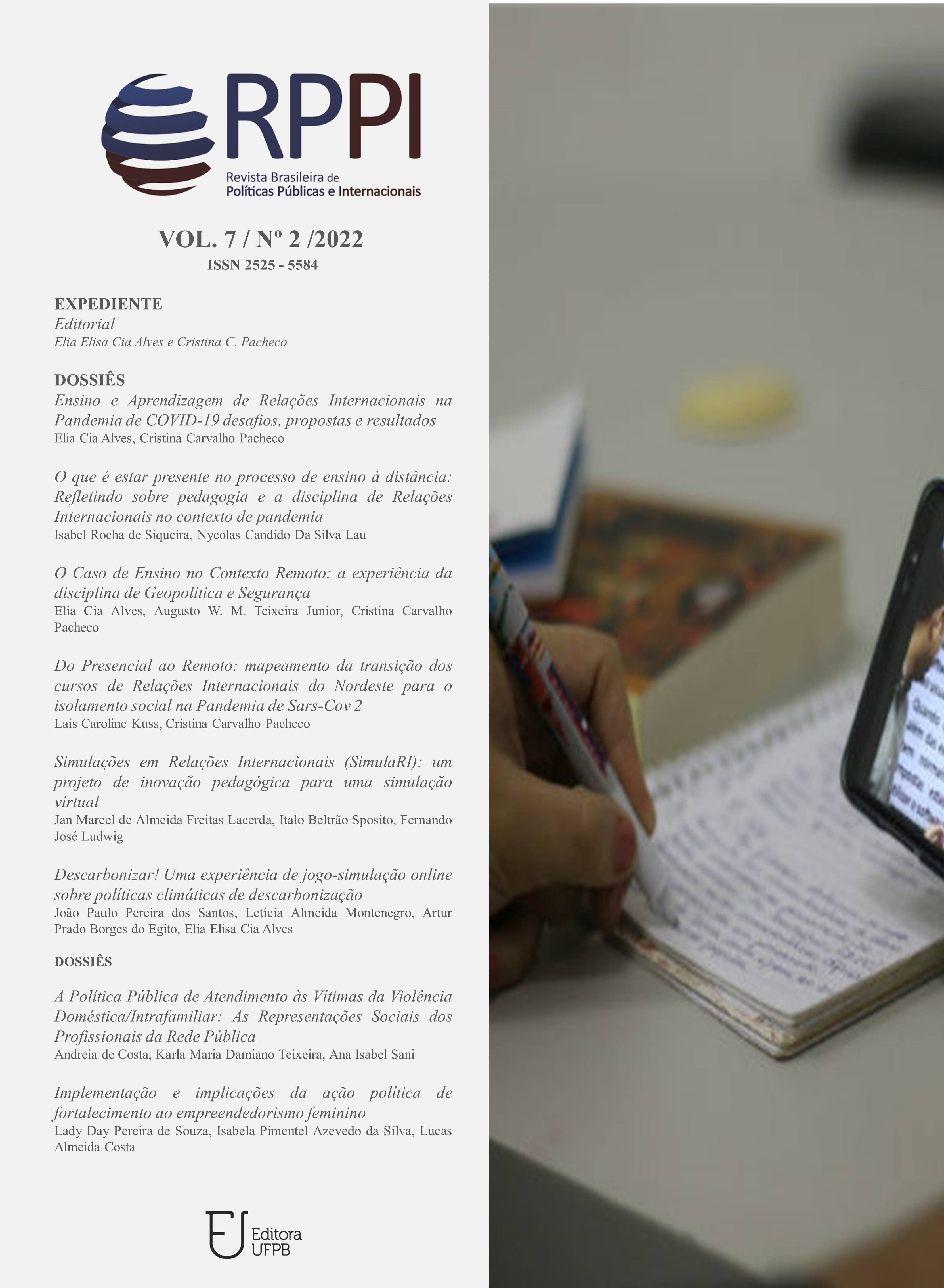Decarbonise! An online simulation experience on decarbonisation climate policies
DOI:
https://doi.org/10.22478/ufpb.2525-5584.2022v7n2.61028Keywords:
Simulation, Active learning, Decarbonisation policies, Climate politicsAbstract
How to introduce a practical dimension to the study of climate change in international relations teaching? This article is a statement of the application of a gamification strategy in a class of graduation in International Relations from XXXX in a distance learning context, to illustrate the understanding of public climate policies on decarbonisation. The platform of simulation Decarbonise! was developed in Europe and is available online, free of charge, and with pedagogical purposes. In this article, we contextualize the importance of the discussion on environmental issues in International Relations courses and we present the operation and results of the simulation experience. Based on the feedback of eighteen students, the simulations enabled the theoretical discussion of the topic more practically and actively. According to eleven self-perceptions form responses around the simulation experience, we observed a significant increase in understanding around pricing-based policies (Carbon Tax) and alternative energy trading schemes (Energy Budget Scheme), while self-perceived understanding of multiple green policy instruments (Green Economy Toolbox) has also increased, but to a lesser extent.
Downloads
Downloads
Published
Issue
Section
License
Copyright (c) 2022 João Paulo Pereira dos Santos, Letícia Almeida Montenegro, Artur Prado Borges do Egito, Elia Elisa Cia Alves

This work is licensed under a Creative Commons Attribution 4.0 International License.
Autores que publicam nesta revista concordam com os seguintes termos:- Autores mantém os direitos autorais e concedem à revista o direito de primeira publicação, com o trabalho simultaneamente licenciado sob a Licença Creative Commons Attribution que permite o compartilhamento do trabalho com reconhecimento da autoria e publicação inicial nesta revista.
- Autores têm autorização para assumir contratos adicionais separadamente, para distribuição não-exclusiva da versão do trabalho publicada nesta revista (ex.: publicar em repositório institucional ou como capítulo de livro), com reconhecimento de autoria e publicação inicial nesta revista.
- Autores têm permissão e são estimulados a publicar e distribuir seu trabalho online (ex.: em repositórios institucionais ou na sua página pessoal) a qualquer ponto antes ou durante o processo editorial, já que isso pode gerar alterações produtivas, bem como aumentar o impacto e a citação do trabalho publicado (Veja O Efeito do Acesso Livre).




_.jpg)






.png)


.jpg)
_.png)
